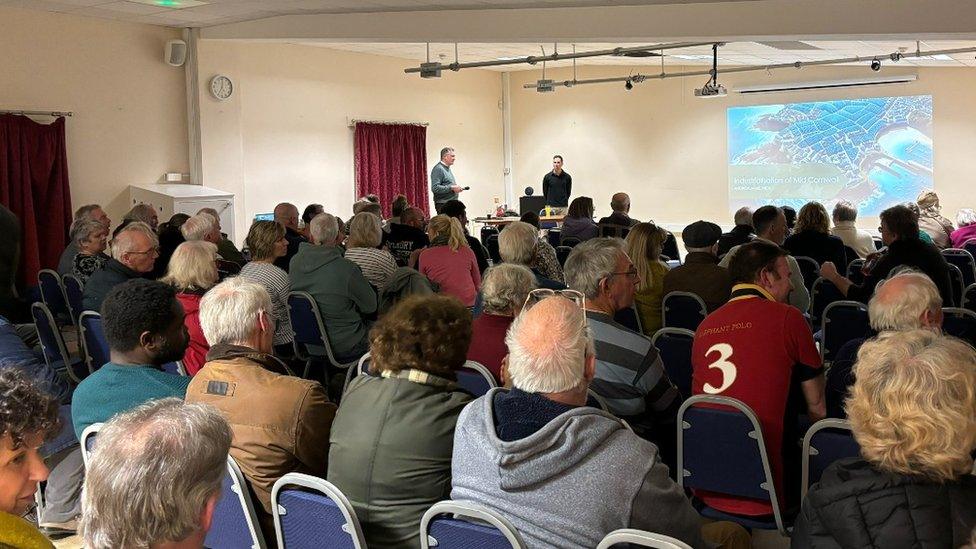Call for power to protect farms from solar panels
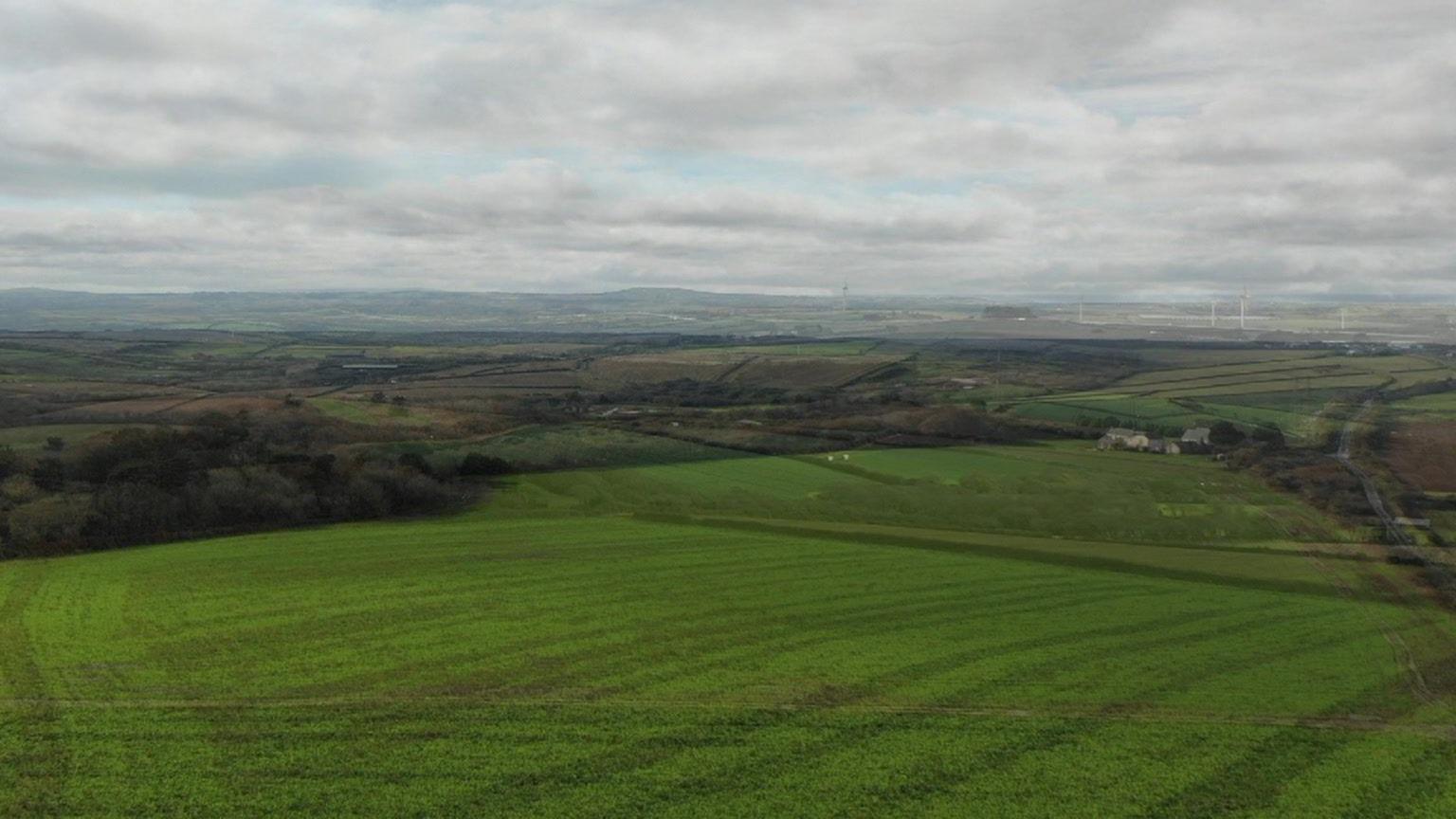
Land at Carland Cross was proposed to be used for Cornwall's largest solar farm to date
- Published
Food security should be a critical factor when deciding plans for big solar farms, a councillor has said.
The call comes after Cornwall Council rejected a proposal for a 210-acre (85-hectare) solar farm close to the A30 at Carland Cross, while another proposal for farmland near Launceston was blocked in August, both due to fears about the impact on the landscape.
Councillors argued planning rules should be updated to allow the preservation of farmland as a reason to refuse proposals.
The council said a review of land would start next year to help inform where solar farms would be appropriate.
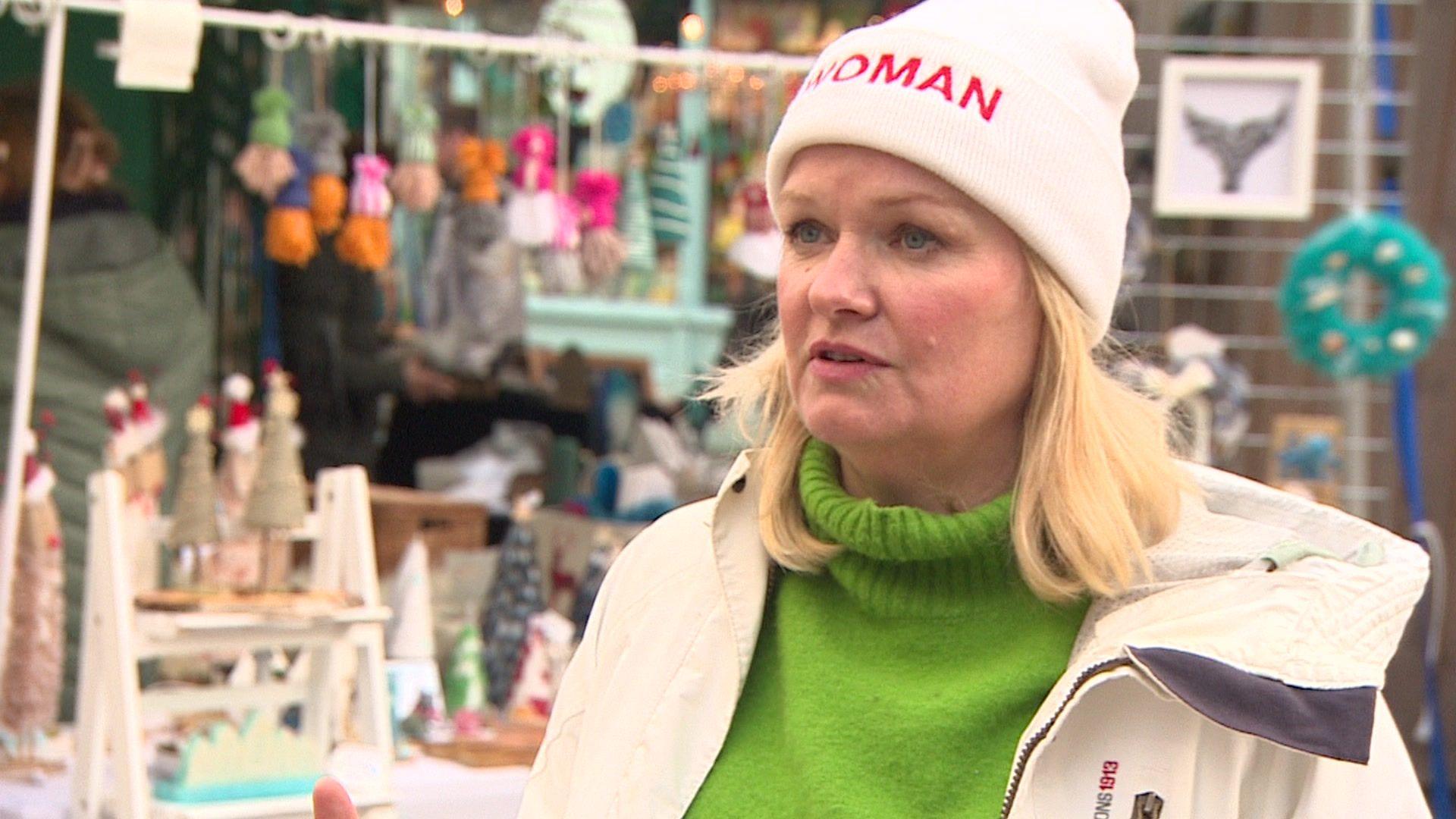
Councillor Dulcie Tudor said food security should be given higher priority when making planning decisions
The developers behind the Carland Cross proposal, which would be Cornwall's largest solar farm, they were deciding whether to appeal the decision to block it.
Members said they feared an appeal would be successful - given the government's commitment to triple UK solar power by 2030 to boost energy security.
Councillor Dulcie Tudor, vice-chairwoman of the council's Strategic Planning Committee, said they would have a stronger case if they could argue the importance of food security.
She said: "We were feeling, 'Where we can make a point about the loss of agricultural land and the concern about food security?'
"We weren't able to do that within planning policies."
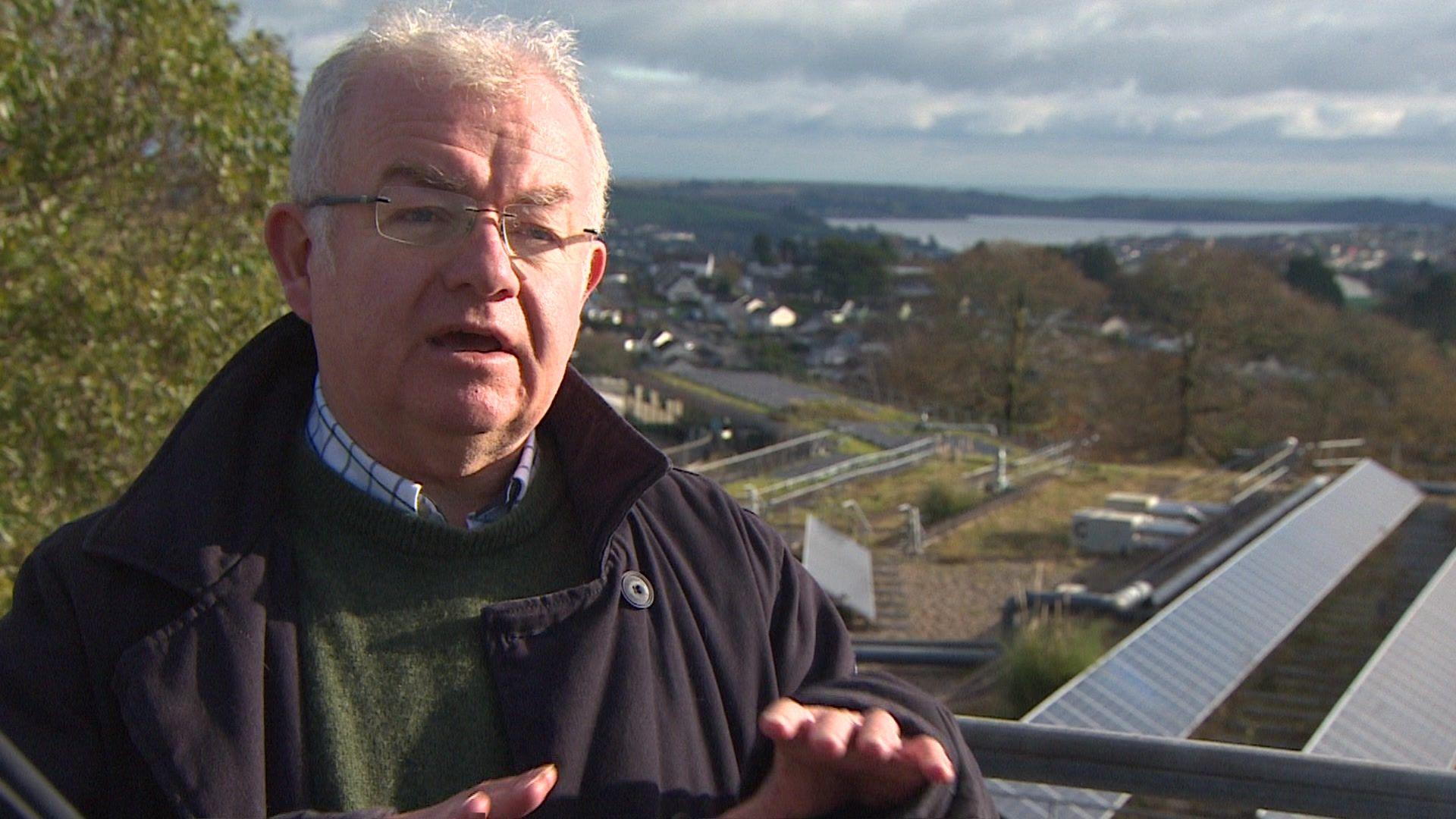
Peter Connor said research was under way to examine crop yields on farmland with solar panels
Cornwall Council declared a "climate emergency" in 2019, external with ambitions to become carbon neutral by 2030.
In April, the authority also agreed to commission research, external into the commercial value of agricultural land in Cornwall.
Supporters argue the area's climate meant certain land could be more productive than in other parts of the country.
Tudor believed further research on the issue would help.
"We don't have that information," she said.
"We don't know much land is being forfeited and we don't know how to judge that on its grade either."
Review expected
Prof Peter Connor, an expert in renewable energy from the University of Exeter, said a compromise on the use of farmland was possible.
"You can put solar panels on land and still have some sort of farm production - growing crops or having animals," he said.
"We're still looking at what the yields would be like from combining the two, but it's absolutely possible."
Cornwall Council said in a statement: "Any changes to planning policy must be included in the council's Local Plan.
"The first phase will be undertaken next year, including reviewing land use trends.
"The council is working with potential suppliers to ensure that we commission good value, relevant and useful work to inform planning policy on solar farms."
Follow BBC Cornwall on X (formerly Twitter), external, Facebook, external and Instagram, external. Send your story ideas to spotlight@bbc.co.uk, external.
Related topics
- Published23 November 2024
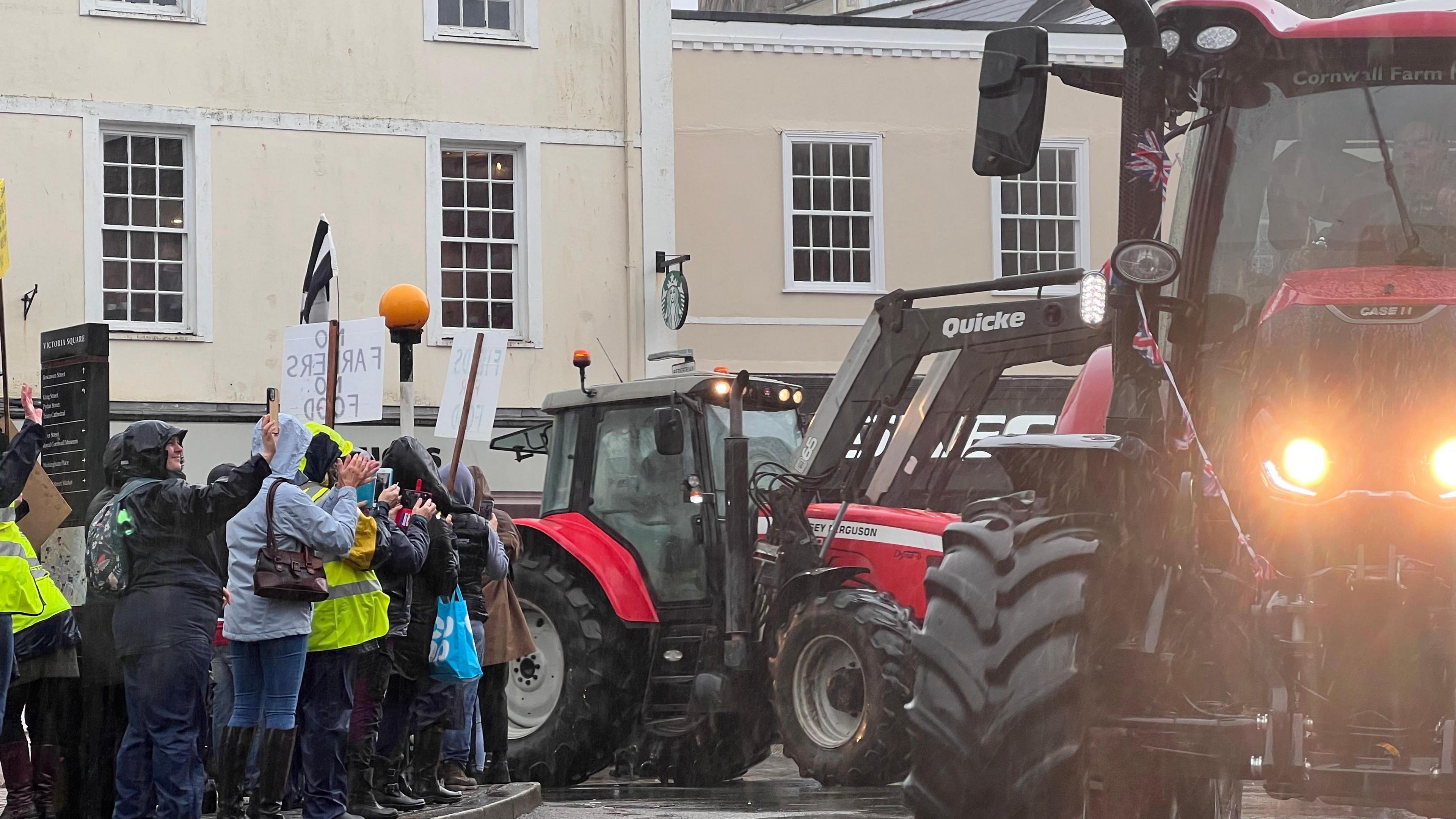
- Published15 August 2024
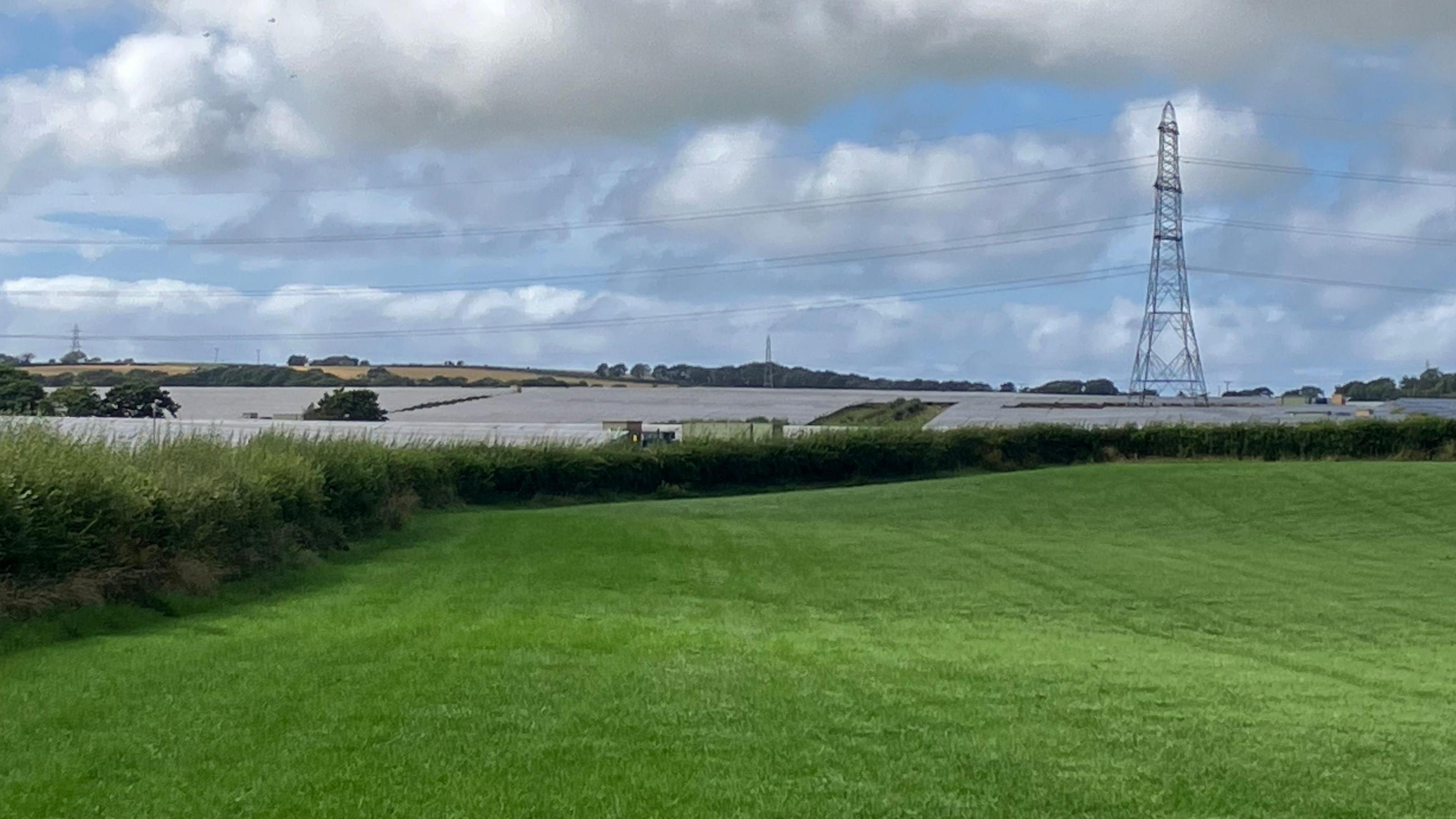
- Published16 March 2024
